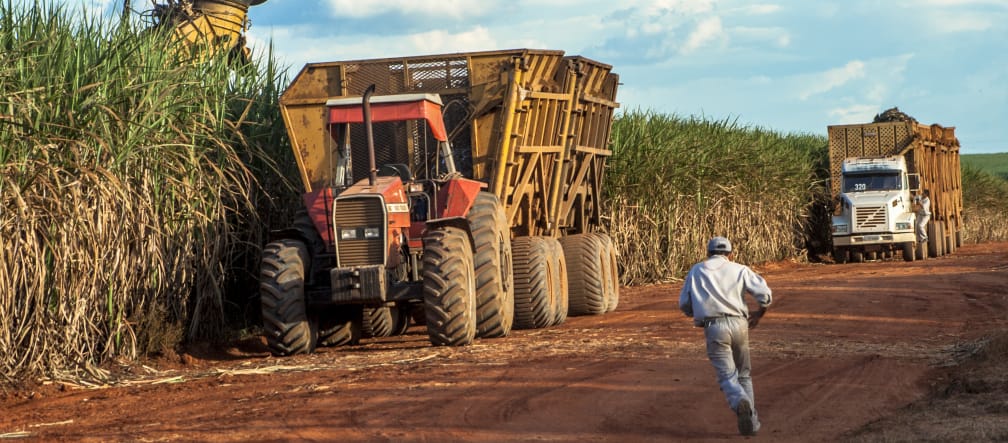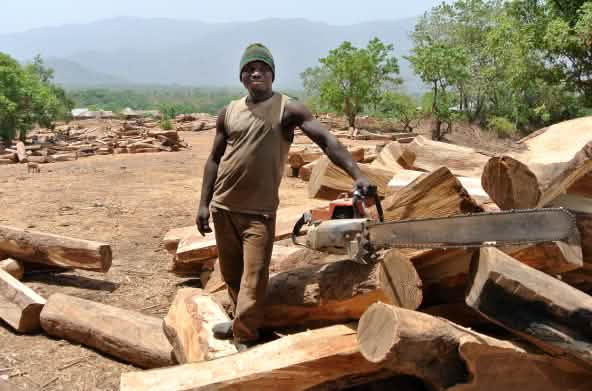
Completed campaign
Brazil: Keep biofuel plantations out of the rainforest!
Brazilian President Bolsonaro has repealed a ban on growing sugar cane in the Amazon rainforest and Pantanal wetlands in order to produce more ethanol for export. A major target market: the EU, which is set to increase its ethanol imports by a factor of 16 under a free trade agreement still to be finalized.
To: the European Union and its Member States
“Stop the cultivation of sugar cane for biofuel on rainforest land – NO to free trade in Brazilian ethanol!”On November 5, 2019, Brazilian President Bolsonaro revoked a 2009 decree (No. 6,961) that outlawed the cultivation of sugar cane in the Amazon and the world’s largest tropical wetland area, Pantanal.
Brazilian environmental organizations, scientists and opposition politicians consider the decision to be catastrophic. With this move, the government is giving the green light for even more deforestation, forest fires, pesticide use and land conflicts.
Unsurprisingly, the Brazilian sugar cane industry association UNICA welcomed the decision.
Since Bolsonaro took office in January 2019, the deforestation rate in the South American country has increased by 30% and thousands of square kilometers of old-growth forest have gone up in flames to make way for industrial agriculture.
Sugar cane is grown in Brazil for the sugar industry and the production of biofuel – Brazil is the second-largest producer of ethanol, an alcohol-based fuel that is blended with gasoline, after the USA.
Within the framework of the Paris Climate Agreement, Brazil plans to increase ethanol production from the current 30 to 54 billion liters by 2030, according to the Brazilian NGO Observatório do Clima. To achieve this, the area under sugar cane cultivation must be increased by 11 million hectares.
Most ethanol produced in Brazil is consumed as biofuel on the domestic market. However, a free trade agreement negotiated between the EU and the South American Mercosur countries in June 2019 provides for an increase in the EU’s ethanol imports from Brazil by a factor of more than sixteen – from the current 50 million liters to 826 million liters per year.
The European Parliament and the EU Member States have not yet approved the free trade agreement, however – there is still a chance to avert this potential disaster.
Sugar cane cultivation in Brazil
Sugar cane is currently Brazil’s third most important crop after soy and corn. In 2016, sugar cane plantations covered 10.5 million hectares, which represents 13.5% of the country’s total arable land. According to data from the Ministry of Industry, Foreign Trade and Services, sugar and ethanol accounted for about five percent of Brazil’s exports in 2016.
Until now, the cultivation of sugar cane and related industries such as sugar cane mills and ethanol production facilities have been concentrated in the southeast and northeast of Brazil. The state of Sao Paulo alone accounts for over half of the cultivation and processing.
Decree No. 6,961 of 2009, now repealed by President Bolsonaro, had used “agro-ecological zoning of sugar cane in Brazil” to rule out public agricultural loans to establish sugar cane plantations and processing facilities such as sugar cane mills and ethanol plants in the Amazon and Pantanal wetlands. Without such funds, growing and processing sugar cane is not an attractive proposition for the agricultural industry.
In recent years, the expansion of sugar cane cultivation only affected ecological zones in Brazil not covered by the decree, such as the Mata Atlantica coastal rainforest and the tropical savannas of the Cerrado. The ethanol industry claims that new sugar cane plantations have been established only in existing agricultural areas – mainly grazing land – and that no natural areas have been converted.
This is misleading, however. Previous users, such as livestock farmers, move into previously unused areas and clear new grazing land there, a practice known as indirect land use change. Thus, the establishment of grazing land and soy farms are the main cause of deforestation in the Amazon region, tropical savannas such as the Cerrado, and the Pantanal wetlands.
The ethanol industry
Brazil is the largest economy in the Mercosur alliance, which also includes Argentina, Uruguay and Paraguay. According to figures from the sugar cane association UNICA, Brazil produced 30 billion liters of ethanol from sugar cane annually as of 2018.
Over 28 billion liters (94%) of ethanol are consumed on the domestic market. In Brazil, several million cars have “flexifuel” engines that can run on pure ethanol or any mixture of ethanol and gasoline.
According to Brazil’s Observatório do Clima (Climate Observatory), an alliance of some 44 Brazilian environmental and development organizations, ethanol production in Brazil is expected to reach 54 billion liters in 2030 to meet the country's commitments under the Paris Agreement. To reach the Paris target, a further 11 million hectares of sugar cane are needed to double ethanol production.
1.66 billion liters (6%) of Brazil’s ethanol are currently exported, of which 950 million liters (3.2%) are exported to North America, 660 million liters (2.2%) to Asia, and almost 50 million liters (0.17%) to Europe.
After years of negotiations, the EU and the South American Mercosur alliance have established a free trade agreement. It has yet to be ratified by the European Parliament and the Member States, however.
The agreement provides that 450,000 tons of ethanol for industrial applications may be imported into the EU duty-free and a further 200,000 tons may be imported into the EU at a two-thirds reduction of the current customs tariff. Together, these 650,000 tons amount to 826 million liters of ethanol, and thus around 12 percent of current EU consumption. This will further open up the market for biofuels from cultivated biomass without taking into account the quantity limit applicable in the EU.
Further information
- Mongabay, 13 Nov. 2019: In surprise move, Brazil has removed restrictions on Amazon sugarcane production
- Mongabay, 18 Nov. 2019: Sugarcane threatens Amazon forest and world climate; Brazilian ethanol is not clean (commentary)
- Repórter Brasil, 13 Nov. 2019: Após explosão das queimadas, cana-de-açúcar é nova ameaça à Amazônia e ao Pantanal
- Observatório do Clima, 11 Nov. 2019: Dez perguntas sobre o zoneamento da cana
- Brazilian Ministry of the Environment: Fundamentos para a elaboração da Pretendida Contribuição Nacionalmente Determinada (iNDC) do Brasil no contexto do Acordo de Paris sob a UNFCCC
- European Union, 14 Oct. 2019: Assessing the impacts of the EU bioeconomy on third countries - Potential environmental impacts in Brazil of EU biofuel demand to 2030
- UNICA, 6 Nov. 2019: OPINIÃO – UM PASSO À FRENTE
- INSTITUTO BRASILEIRO DE GEOGRAFIA E ESTATÍSTICA – IBGE, 2017: A Geografia da Cana-de-Açúcar- Dinâmica Territorial da Produção Agropecuária
Conversion factor:
1 kg ethanol = 1.27 l ethanol
1 liter ethanol = 0.79 kg ethanol
To: the European Union and its Member States
Ladies and Gentlemen,
The last three years have seen a dramatic increase in deforestation and burning of the Amazon rainforest and other ecosystems in Brazil.
Despite this alarming development, the EU negotiated a free trade agreement with Brazil and the other Mercosur countries in June 2019. The agreement provides for an increase in EU ethanol imports from Brazil by a factor of more than 16 – from the current 50 million liters to 826 million liters per year.
In November 2019, Brazilian President Bolsonaro revoked a 2009 decree (No. 6,961) that banned the growing of sugar cane in the Amazon and the Pantanal, the world’s largest tropical wetland area. As a result, the EU’s demand for supposedly “green” biofuels is now a very real threat to Brazil’s rainforests and tropical wetlands.
We call on you to ban ethanol imports from Brazil and instead work for the protection of nature in Brazil.
Yours faithfully,

